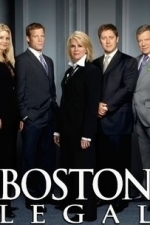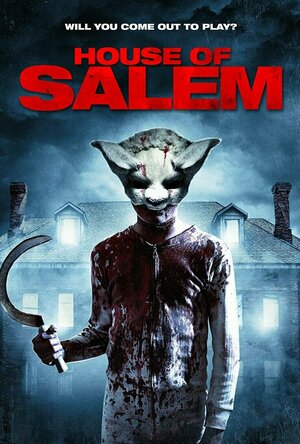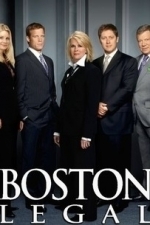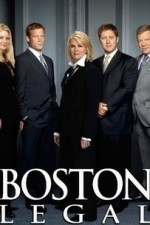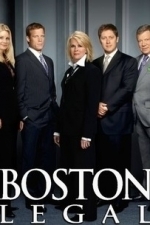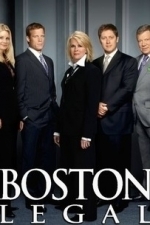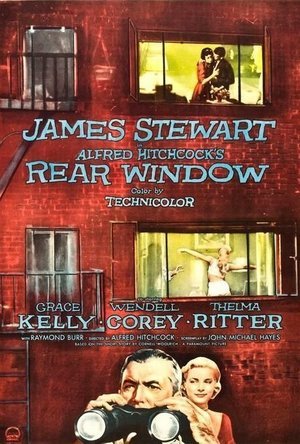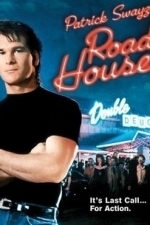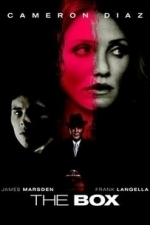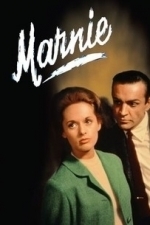Search
Search results
Rob Fuller (19 KP) rated Boston Legal - Season 1 in TV
Jul 16, 2017
Flawless Drama
This show doesn't need a long review - it's too perfect. Too funny. Too clever. the chemistry between James Spader and William Shatner as Alan and Denny respectively draws you in and makes you wish they were your buddies, that you could hang out with them on the penthouse office balcony, talking philosophically about life with a cigar in one hand and a fine scotch whiskey in the other. The cast is superb and the writing brilliant...Thank you David E Kelly et al.
Blazing Minds (92 KP) rated House of Salem (2016) in Movies
Nov 1, 2021 (Updated Nov 3, 2021)
House of Salem is directed by James Crow and is a British occult horror that takes the viewer on a journey to a house that has a terrifying history. When kidnappers snatch Josh (played by newcomer Liam Kelly) from his home in the dead of night, they head to a safe house to await the delivery of their ransom money.
House of Salem isn’t the best horror you’ll see, but it’s certainly not the worst.
House of Salem isn’t the best horror you’ll see, but it’s certainly not the worst.
Rob Fuller (19 KP) rated Boston Legal - Season 2 in TV
Jul 16, 2017
Flawless
as with season 1 - This show doesn't need a long review - it's too perfect. Too funny. Too clever. the chemistry between James Spader and William Shatner as Alan and Denny respectively draws you in and makes you wish they were your buddies, that you could hang out with them on the penthouse office balcony, talking philosophically about life with a cigar in one hand and a fine scotch whiskey in the other. The cast is superb and the writing brilliant...Thank you David E Kelly et al.
Rob Fuller (19 KP) rated Boston Legal - Season 3 in TV
Jul 16, 2017
Flawless
As with season's 1 & 2 - This show doesn't need a long review - it's too perfect. Too funny. Too clever. the chemistry between James Spader and William Shatner as Alan and Denny respectively draws you in and makes you wish they were your buddies, that you could hang out with them on the penthouse office balcony, talking philosophically about life with a cigar in one hand and a fine scotch whiskey in the other. The cast is superb and the writing brilliant...Thank you David E Kelly et al.
Rob Fuller (19 KP) rated Boston Legal - Season 4 in TV
Jul 16, 2017
Flawless
as with season's 1,2 & 3 - This show doesn't need a long review - it's too perfect. Too funny. Too clever. the chemistry between James Spader and William Shatner as Alan and Denny respectively draws you in and makes you wish they were your buddies, that you could hang out with them on the penthouse office balcony, talking philosophically about life with a cigar in one hand and a fine scotch whiskey in the other. The cast is superb and the writing brilliant...Thank you David E Kelly et al.
Rob Fuller (19 KP) rated Boston Legal - Season 5 in TV
Jul 16, 2017
Flawless
As with the previous 4 seasons - This show doesn't need a long review - it's too perfect. Too funny. Too clever. the chemistry between James Spader and William Shatner as Alan and Denny respectively draws you in and makes you wish they were your buddies, that you could hang out with them on the penthouse office balcony, talking philosophically about life with a cigar in one hand and a fine scotch whiskey in the other. The cast is superb and the writing brilliant...Thank you David E Kelly et al.
Bob Mann (459 KP) rated Rear Window (1954) in Movies
Sep 29, 2021
“Hmm… must have splattered a lot”.
Maddy at Maddy Loves Her Classic Films is hosting The Alfred Hitchcockblogathon. A fine idea, celebrating the life and works of the “Master of Suspense”. My contribution comes from his 1954 masterpiece “Rear Window” starring James Stewart and Grace Kelly.
rw-poster
In one pan around his small apartment, and without a word of dialogue required, Hitchcock deftly fills in all the back-story you need: Stewart plays ace photo-journalist L.B. Jefferies, laid up from jetting the world to worn-torn regions by a broken leg in a full-cast with only his courtyard view to entertain him. In sweltering summer temperatures all the apartments are open to the elements, so he can be well entertained by the menagerie before him: “Miss Torso”, the scantily-clad and frequently showering ballerina; a sculptress with an eye towards Henry Moore; a struggling composer (who has his clock wound by someone very familiar!); a newly-wedded bride threatening to wear out the groom; a salesman and his bed-ridden wife; a dog-loving and balcony-sleeping couple; and “Miss Lonelyhearts” – a hard-drinking spinster forced to create imaginary male dinner-guests.
Stewart plays his usual ‘Mr Ordinary’ watching perfectly ordinary goings on in a perfectly ordinary apartment block.
Or not. Jefferies is drawn to some odd-events in the apartment of the salesman (Raymond Burr, still 13 years before his career-defining role in TV’s “Ironside”). His rampant suspicions infect not only his cranky middle-aged physiotherapist Stella (Thelma Ritter) but also his perfect (“too perfect”) girlfriend, the fashion expert Lisa (Grace Kelly). Of course his police friend Doyle (Wendell Corey) is having none of it… there is no evidence of any crime being committed. And the “murdered” wife has been seen being put on a train by her husband, and is sending him letters from the countryside.
Is Jefferies just going stir-crazy? Or is there really something to it?
The set for this film is masterly. Although depicting a genuine location in New York’s Greenwich village the huge set was constructed on the Paramount lot in Hollywood, and you can just imagine the army of carpenters and artists building the multi-layered structure.
It’s one of the stars of the film, allowing for a wealth of detail to be populated: in the apartments; in the street behind; even in the cafe over the other side of the street. And it’s this detail that really makes what could be a highly static film come alive. There are a half dozen films-within-the-film going on at once, with Stewart’s character – and you as the fellow-voyeur – having a multi-pass to watch them all simultaneously.
And watch he does. As what could be perceived as a seriously pervy character – something he is called out on by Stella – Jeffries gets to see an eyeful in particular of the shapely and scantily-clad ballerina (Georgine Darcy, agent-less and only paid $350 for the role!). These scenes must have been deemed quite risque for the year of release.
Where the film rather falters is in the bickering romance between Stewart and Kelly. As a hot-blooded man, I will declare that even today Kelly’s first dream-like appearance (with Vaseline lightly coating the lens) is breathtaking. She’s just the ‘girl-next-door’: if you live next to a palace that is! And yet (with Kelly 21 years Stewart’s junior) she’s just “too perfect” for L.B. , who feels (against her protestations) that she’s ‘too girly’ to hack the life of a war photographer on the road. The mysogeny, common for the day, is gasp-making: “If a girl’s pretty enough, she just has to ‘be'” intones Stewart, to no howls of protest or throwing of saucepans! In fact Kelly is greatly encouraged: “Preview of coming attractions” purrs Kelly, flaunting what she has around the apartment in a negligee.
These scenes though are rather overlong and somewhat get in the way of the murder mystery plot-line. Things really start to warm up when a death occurs, to piercing screams in the night: “Which one of you did it?” shouts a woman to the neighbourhood, as everything – momentarily – stops. “WHICH ONE OF YOU DID IT?”. Given your emotional involvement in the ongoing voyeurism, it’s hard as a viewer not to feel discomforted…. (“well, it wasn’t me”…. shifts uneasily in the seat).
From then on, Hitchcock proceeds to pile on suspenseful jolt after jolt, with first Lisa and then L.B. placed in harms way. While the perpetrator may seem clueless and incompetent, as most murderers of passion probably are, the denouement is satisfying, with a great trial use of green-screen ‘falling’ that would be perfected by Hitchcock for “Vertigo” four years later.
What’s curious for such as classic is that there are a number of fluffed lines in the piece: with two notable ones by Stewart and Kelly. Hitchcock was the master of long and uninterrupted takes, but did he not believe in re-shooting scenes when such errors occurred? Most odd.
Although tighter and more claustrophobic that some of his better known films, this is a firm favourite of mine. If you’ve never seen it, its well worth you checking out.
rw-poster
In one pan around his small apartment, and without a word of dialogue required, Hitchcock deftly fills in all the back-story you need: Stewart plays ace photo-journalist L.B. Jefferies, laid up from jetting the world to worn-torn regions by a broken leg in a full-cast with only his courtyard view to entertain him. In sweltering summer temperatures all the apartments are open to the elements, so he can be well entertained by the menagerie before him: “Miss Torso”, the scantily-clad and frequently showering ballerina; a sculptress with an eye towards Henry Moore; a struggling composer (who has his clock wound by someone very familiar!); a newly-wedded bride threatening to wear out the groom; a salesman and his bed-ridden wife; a dog-loving and balcony-sleeping couple; and “Miss Lonelyhearts” – a hard-drinking spinster forced to create imaginary male dinner-guests.
Stewart plays his usual ‘Mr Ordinary’ watching perfectly ordinary goings on in a perfectly ordinary apartment block.
Or not. Jefferies is drawn to some odd-events in the apartment of the salesman (Raymond Burr, still 13 years before his career-defining role in TV’s “Ironside”). His rampant suspicions infect not only his cranky middle-aged physiotherapist Stella (Thelma Ritter) but also his perfect (“too perfect”) girlfriend, the fashion expert Lisa (Grace Kelly). Of course his police friend Doyle (Wendell Corey) is having none of it… there is no evidence of any crime being committed. And the “murdered” wife has been seen being put on a train by her husband, and is sending him letters from the countryside.
Is Jefferies just going stir-crazy? Or is there really something to it?
The set for this film is masterly. Although depicting a genuine location in New York’s Greenwich village the huge set was constructed on the Paramount lot in Hollywood, and you can just imagine the army of carpenters and artists building the multi-layered structure.
It’s one of the stars of the film, allowing for a wealth of detail to be populated: in the apartments; in the street behind; even in the cafe over the other side of the street. And it’s this detail that really makes what could be a highly static film come alive. There are a half dozen films-within-the-film going on at once, with Stewart’s character – and you as the fellow-voyeur – having a multi-pass to watch them all simultaneously.
And watch he does. As what could be perceived as a seriously pervy character – something he is called out on by Stella – Jeffries gets to see an eyeful in particular of the shapely and scantily-clad ballerina (Georgine Darcy, agent-less and only paid $350 for the role!). These scenes must have been deemed quite risque for the year of release.
Where the film rather falters is in the bickering romance between Stewart and Kelly. As a hot-blooded man, I will declare that even today Kelly’s first dream-like appearance (with Vaseline lightly coating the lens) is breathtaking. She’s just the ‘girl-next-door’: if you live next to a palace that is! And yet (with Kelly 21 years Stewart’s junior) she’s just “too perfect” for L.B. , who feels (against her protestations) that she’s ‘too girly’ to hack the life of a war photographer on the road. The mysogeny, common for the day, is gasp-making: “If a girl’s pretty enough, she just has to ‘be'” intones Stewart, to no howls of protest or throwing of saucepans! In fact Kelly is greatly encouraged: “Preview of coming attractions” purrs Kelly, flaunting what she has around the apartment in a negligee.
These scenes though are rather overlong and somewhat get in the way of the murder mystery plot-line. Things really start to warm up when a death occurs, to piercing screams in the night: “Which one of you did it?” shouts a woman to the neighbourhood, as everything – momentarily – stops. “WHICH ONE OF YOU DID IT?”. Given your emotional involvement in the ongoing voyeurism, it’s hard as a viewer not to feel discomforted…. (“well, it wasn’t me”…. shifts uneasily in the seat).
From then on, Hitchcock proceeds to pile on suspenseful jolt after jolt, with first Lisa and then L.B. placed in harms way. While the perpetrator may seem clueless and incompetent, as most murderers of passion probably are, the denouement is satisfying, with a great trial use of green-screen ‘falling’ that would be perfected by Hitchcock for “Vertigo” four years later.
What’s curious for such as classic is that there are a number of fluffed lines in the piece: with two notable ones by Stewart and Kelly. Hitchcock was the master of long and uninterrupted takes, but did he not believe in re-shooting scenes when such errors occurred? Most odd.
Although tighter and more claustrophobic that some of his better known films, this is a firm favourite of mine. If you’ve never seen it, its well worth you checking out.
Mike Wilder (20 KP) rated Road House (1989) in Movies
May 30, 2018
Very underrated
Contains spoilers, click to show
So what kind of film do you get when you have great one liners, bar fights, guns, knives, egos, strippers, blues music, a polar bear and a monster truck? You get one of the most enjoyable and entertaining films of the late 80's, Road House. The film follows James Dalton (Patrick Swayze) a cooler (bouncer) and the best in the business, as he takes employment with Frank Tilghman (Kevin Tighe) the owner of the Double Deuce in Jasper, Missouri. The bar is the roughest in town and he needs Dalton to clean it up. However corrupt business man and crime boss Brad Wesley (Ben Gazzara) stands in his way. After the classic "chick flick" Dirty Dancing, Patrick Swayze was Hollywood gold. Women loved him and men wanted to be him. The film was full of romance. Then along came Road House, a complete opposite to Dirty Dancing, a little romance and loads of action. The film has a great cast including Patrick Swayze, Kevin Tighe, Ben Gazzara, Kelly Lynch, Marshall R. Teague, Red West, Kathleen Wilhoite, John William Young, John Doe, Kurt James Stefka, Keith David & Terry Funk. The cast works well together and it is full of great performances. Naturally Patrick Swayze at the height of his career stands miles apart from the rest of the cast as Dalton. A character that can hurt you with his words just as much as his fists. Tragically, 20 years later Swayze had his life cut short by cancer. His death is still a major loss to the entertainment industry, but his legacy will live on in the great performances and memorable characters he played. The film also a features a great performance by the late great blues guitarist Jeff Healey as Cody. It's the music in the film that goes a long way to achieving the right feel for the film. Everything works well from the characters, the music to the setting. Set in a rural area the scenery is breath-taking and it is used to great effect. But it's the fight choreography that stands out from many other films. Great bar fights are pretty much a thing of the past, but here they are full of action and humour just like the classic westerns. The one on one fights are brutal, mainly for the realism they portray. The script is awesome and full of classic lines mainly from Dalton and although many are cheesy, when he says it, it feels right. The director surprisingly hasn't made many films but the ones I have seen of his I really like and I know I am in the minority. See my review of Gladiator (1992) for more by this director. This is truly a great film, although very underrated. It is also one of my personal all-time favourites. There are a couple of versions of this so ensure that you see the USA or UK version released after 2002 as these are the uncut editions. So grab a few beers and a few friends, but this on a big screen and turn the sound way up for a really great movie experience.
Chris Sawin (602 KP) rated The Box (2009) in Movies
Jun 22, 2019
Norma (Cameron Diaz) and Arthur Lewis (James Marsden) don't seem to be any different than any other hardworking family in the late 1970s on the surface, but things aren't always what they seem. After a freak accident at the doctor's office when she was 18, Norma suffers from a disfigurement on her foot and has a noticeable limp. A student humiliates her in front of her class while she's teaching and Norma is under the impression that would be the worst part of her day until she's informed that the discount faculty had been getting on tuition would be cut next semester. Meanwhile, Arthur works for NASA and had been counting on being recruited as an astronaut since he aced every test, but is rejected for failing the psychological exam. Already living paycheck to paycheck, Norma and Lewis wonder how they'll support their son Walter and themselves until an opportunity presents itself in the form of a box. Arlington Steward (Frank Langella), a man who's missing half of his face, shows up at the Lewis' home and makes them an offer that could solve all of their financial situations at the expense of somebody else with the simple push of a button. But the consequences that unfold for Norma and Arthur ar far greater than what they bargained for.
Richard Kelly is capable of making pretty fantastic films. Donnie Darko is still his crowning achievement. People seem to either love the film or think it's highly overrated, but with repeat viewings over the years it's become a favorite and has a cult like status. Southland Tales showed promise, but just felt like the second half of an already established franchise. That turned out to be true when the three graphic novels were published and were recommended to be read before seeing the film. I admire the fact that they took a different approach to the filmwatching experience, but since I didn't hear about the reading material until after I saw the film it seemed like a lost cause. Possibly too much to be bothered with. So Kelly offers his take on a Twilight Zone episode with The Box and the result leaves the viewer with mixed reactions.
The film seems to drag a bit in the first half hour as it introduces us to the Lewis family. The Box is dropped off on their doorstep, but then we're offered a glimpse into the daily lives of Norma and Arthur Lewis; mostly what their careers and daily struggles are like. Once Mr. Steward shows up and explains what The Box does is when the film begins to gain momentum. From that point until around the time Arthur gets knee deep into his investigation is when The Box is at its peak. There's at least one twist in there that's actually pretty satisfying, but it's unfortunate that the film can't keep that up for its entire duration. From then on, it just seems like the film adds more and more weird plot twists and ridiculous explanations. You'll want the film to have ended 20 minutes prior by the time Mr. Steward makes his second offer to the Lewis family.
The dialogue seemed to fluctuate between sounding natural and sounding forced throughout the film. The film takes place in 1976 and it's established rather well, for the most part. At times, it felt like some of the dialect from today slipped through the cracks and made it into a film that took place over 30 years ago. The acting wasn't entirely satisfying either. Was Cameron Diaz's accent noticeable in the trailer for the film? It didn't really click until around the five minute mark of the actual film and seemed to kind of come and go depending on how much dialogue Diaz actually had in a particular scene. Frank Langella was the most enjoyable, but if he wasn't missing half of his face or being so mysterious then his character would probably be kind of dull since he doesn't actually show any range of emotion in the film. The CG also seemed to look a bit low budget during the three gateways scene, which is odd since the pool scene was pulled off incredibly well. With all of these superbly CG animated films coming out as of late like Disney Pixar's Up, Disney's A Christmas Carol, and even next year's Toy Story 3, if CG of a lower quality is contained in a film after that it becomes extremely evident in comparison.
Richard Kelly's The Box puts a modern day spin on a classic story and while it isn't entirely satisfying, it does have its high points. As the puzzle the film is wrapped in unravels, its first few reveals are interesting, but it was like they tried to cram in as many twists and turns as possible as the film went on. While Kelly has at least one great film under his belt, it seems like he still hasn't found a specific stride to being a great director. That doesn't mean he's not capable of doing so and he certainly has his trademarks that seem to bleed through in his films (usually something relating to another gateway or dimension), but that he hasn't been able to channel a similar formula to what made Donnie Darko his standout film. That, in itself, is disappointing.
Richard Kelly is capable of making pretty fantastic films. Donnie Darko is still his crowning achievement. People seem to either love the film or think it's highly overrated, but with repeat viewings over the years it's become a favorite and has a cult like status. Southland Tales showed promise, but just felt like the second half of an already established franchise. That turned out to be true when the three graphic novels were published and were recommended to be read before seeing the film. I admire the fact that they took a different approach to the filmwatching experience, but since I didn't hear about the reading material until after I saw the film it seemed like a lost cause. Possibly too much to be bothered with. So Kelly offers his take on a Twilight Zone episode with The Box and the result leaves the viewer with mixed reactions.
The film seems to drag a bit in the first half hour as it introduces us to the Lewis family. The Box is dropped off on their doorstep, but then we're offered a glimpse into the daily lives of Norma and Arthur Lewis; mostly what their careers and daily struggles are like. Once Mr. Steward shows up and explains what The Box does is when the film begins to gain momentum. From that point until around the time Arthur gets knee deep into his investigation is when The Box is at its peak. There's at least one twist in there that's actually pretty satisfying, but it's unfortunate that the film can't keep that up for its entire duration. From then on, it just seems like the film adds more and more weird plot twists and ridiculous explanations. You'll want the film to have ended 20 minutes prior by the time Mr. Steward makes his second offer to the Lewis family.
The dialogue seemed to fluctuate between sounding natural and sounding forced throughout the film. The film takes place in 1976 and it's established rather well, for the most part. At times, it felt like some of the dialect from today slipped through the cracks and made it into a film that took place over 30 years ago. The acting wasn't entirely satisfying either. Was Cameron Diaz's accent noticeable in the trailer for the film? It didn't really click until around the five minute mark of the actual film and seemed to kind of come and go depending on how much dialogue Diaz actually had in a particular scene. Frank Langella was the most enjoyable, but if he wasn't missing half of his face or being so mysterious then his character would probably be kind of dull since he doesn't actually show any range of emotion in the film. The CG also seemed to look a bit low budget during the three gateways scene, which is odd since the pool scene was pulled off incredibly well. With all of these superbly CG animated films coming out as of late like Disney Pixar's Up, Disney's A Christmas Carol, and even next year's Toy Story 3, if CG of a lower quality is contained in a film after that it becomes extremely evident in comparison.
Richard Kelly's The Box puts a modern day spin on a classic story and while it isn't entirely satisfying, it does have its high points. As the puzzle the film is wrapped in unravels, its first few reveals are interesting, but it was like they tried to cram in as many twists and turns as possible as the film went on. While Kelly has at least one great film under his belt, it seems like he still hasn't found a specific stride to being a great director. That doesn't mean he's not capable of doing so and he certainly has his trademarks that seem to bleed through in his films (usually something relating to another gateway or dimension), but that he hasn't been able to channel a similar formula to what made Donnie Darko his standout film. That, in itself, is disappointing.
BankofMarquis (1832 KP) rated Marnie (1964) in Movies
Nov 6, 2020
Mediocre Hitchcock - but still pretty good
Heading into 1964, Alfred Hitchcock was on quite a roll. He had just rolled out - in order, VERTIGO (1958), NORTH BY NORTHWEST (1959), PSYCHO (1960) and THE BIRDS (1963) and his anthology series ALFRED HITCHCOCK PRESENTS had made him into a household name throughout the world. So it was with great anticipation/expectation that the world awaited his next major motion picture.
And while this film, MARNIE was not the critical or commercial success of his previous outings, it still has enough good in it that makes it a worthwhile film to watch.
Starring Tippi Hedren (THE BIRDS) and Sean Connery (fresh off his James Bond success in DR. NO and FROM RUSSIA WITH LOVE), MARNIE is, basically, a "two-hander" (a film that is primarily focused on conversation between 2 people) about an habitual thief, Marnie, with deep psychological troubles who is loved (and handled) by a man who is seeking to get to the root of what makes her tick.
And..in someone else's hands..this film could have been overly melodramatic, but in Hitchcock's adroit hands, it is a deep and disturbing psychological thriller that succeeds more often than it doesn't.
Starting with what works, Hitchcock's Direction (obviously) is at the fore. He knows how to play out a moment - especially a scene where Marnie steals from a safe. Hitchcock locks the camera in place and plays the scene with no music and just letting the events play out. It is a typical suspenseful Hitchcock scene and very well done.
The other thing that works is the performance of Connery. His charm and screen charisma shines brightly. making a problematic character like the one Connery portrays seemingly benign. Also...Tippi Hedren's performance at the end of this movie almost rescues her character...almost.
What doesn't work? Well...let's start with the title character, Marnie, as played by Hedren. She just doesn't have the charisma and charm of Connery and never really brings her character to life. She overacts at times when she has one of her "episodes" (I would think that both Hitchcock and Hedren share the blame for this) it is almost laughable in it's over-acting and she just seems in over her head with this role. It is said that Hitchcock had the film and role of Marnie written specifically as a comeback vehicle for Grace Kelly. It is too bad that this didn't come to pass, as I would have LOVED to see what an actress of her caliber would have done with this role.
The other thing that doesn't really work for me is the 2 characters at the forefront of this film. Both Hedren's Marnie and Connery's Mark Rutland are not likeable (though, as I said earlier, Connery's charm and charisma rescue's the Rutland character), but neither of these characters are ones that us, the audience, particularly care for - and that is a problem with a film that is pretty much focused on these characters.
Not one of Hitchcock's best...but still good...and the ending almost makes up for the weaknesses of the earlier parts of the movie.
Letter Grade: B
7 stars (out of 10) - even mediocre Hitchcock is till pretty good.
And...you can take that to the Bank(ofMarquis)
And while this film, MARNIE was not the critical or commercial success of his previous outings, it still has enough good in it that makes it a worthwhile film to watch.
Starring Tippi Hedren (THE BIRDS) and Sean Connery (fresh off his James Bond success in DR. NO and FROM RUSSIA WITH LOVE), MARNIE is, basically, a "two-hander" (a film that is primarily focused on conversation between 2 people) about an habitual thief, Marnie, with deep psychological troubles who is loved (and handled) by a man who is seeking to get to the root of what makes her tick.
And..in someone else's hands..this film could have been overly melodramatic, but in Hitchcock's adroit hands, it is a deep and disturbing psychological thriller that succeeds more often than it doesn't.
Starting with what works, Hitchcock's Direction (obviously) is at the fore. He knows how to play out a moment - especially a scene where Marnie steals from a safe. Hitchcock locks the camera in place and plays the scene with no music and just letting the events play out. It is a typical suspenseful Hitchcock scene and very well done.
The other thing that works is the performance of Connery. His charm and screen charisma shines brightly. making a problematic character like the one Connery portrays seemingly benign. Also...Tippi Hedren's performance at the end of this movie almost rescues her character...almost.
What doesn't work? Well...let's start with the title character, Marnie, as played by Hedren. She just doesn't have the charisma and charm of Connery and never really brings her character to life. She overacts at times when she has one of her "episodes" (I would think that both Hitchcock and Hedren share the blame for this) it is almost laughable in it's over-acting and she just seems in over her head with this role. It is said that Hitchcock had the film and role of Marnie written specifically as a comeback vehicle for Grace Kelly. It is too bad that this didn't come to pass, as I would have LOVED to see what an actress of her caliber would have done with this role.
The other thing that doesn't really work for me is the 2 characters at the forefront of this film. Both Hedren's Marnie and Connery's Mark Rutland are not likeable (though, as I said earlier, Connery's charm and charisma rescue's the Rutland character), but neither of these characters are ones that us, the audience, particularly care for - and that is a problem with a film that is pretty much focused on these characters.
Not one of Hitchcock's best...but still good...and the ending almost makes up for the weaknesses of the earlier parts of the movie.
Letter Grade: B
7 stars (out of 10) - even mediocre Hitchcock is till pretty good.
And...you can take that to the Bank(ofMarquis)
